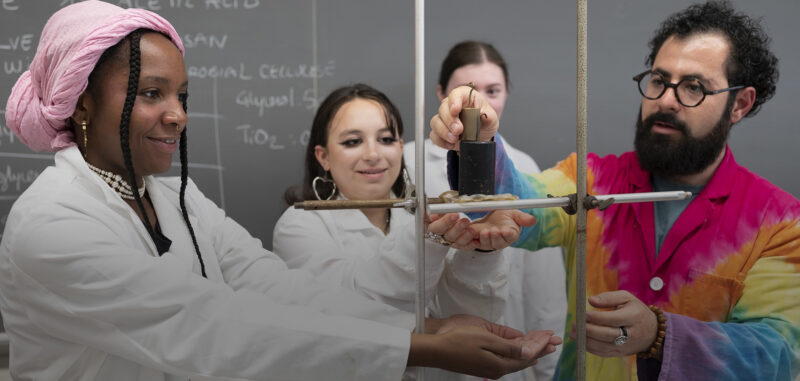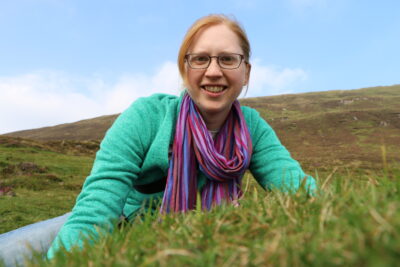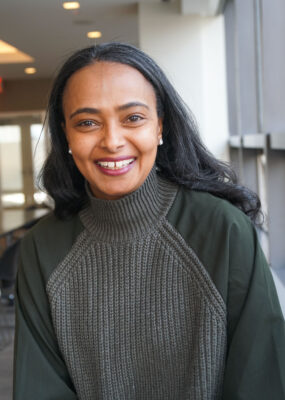
On April 25, two faculty members from the Department of Science and Math, spoke at the Vanguard Award Ceremony, held during the Nontraditional Employment and Training Conference. Deborah Berhanu, an associate professor who specializes in materials science, and Evelyn Rynkiewicz, an assistant professor who teaches ecology, discussed inclusive STEM classrooms and celebrated the 2023–24 winners of the award, which recognizes eight outstanding post-secondary students across New York State who excel in a field of study that’s nontraditional for their gender.

“It’s very important to realize many careers are still gender-based, which you wouldn’t think,” Berhanu observes. Men traditionally dominate STEM classrooms. But, Berhanu adds, “FIT is already majority female, so here ‘more inclusive’ means creating diverse examples, being a face for women and underrepresented folks.”
As science educators at FIT, the professors teach about ways that science elevates design. In the classroom, their students learn about “materials and their life cycle, natural dyes versus synthetics, and how to create systems for recycling garments,” Rynkiewicz explains. The goal is to help students see that science plays a critical role everything from no-waste patternmaking to the incorporation of bacteria-killing nanotechnology into textiles.

“It’s become urgent for science play a bigger role in fashion. It’s about rethinking, not just adapting designs, but changing your whole understanding of fashion,” Berhanu says. “Preparing students to tackle the great challenges ahead requires answers from many different voices, so they dive into this new work with optimism.”
To meet the future with confidence, students need skills and knowledge. “We teach them to analyze data and find solutions, rather than just giving up,” Rynkiewicz adds. “It’s not helpless. There are a lot of places to make a big difference.”
